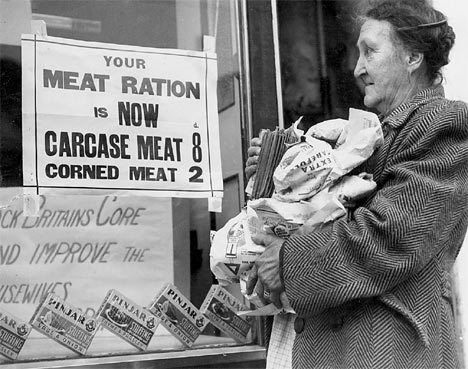British Restaurants were set up by Local Authorities
The government had to ensure the people had enough to eat and in April 1940 appointed Lord Woolton as Minister for Food. They wanted to ensure the population were fit and able to face the challenges and contribute to the fight ahead. The Ministry of Food made plans for the rationing and distribution of food based on the findings of nutritional science at that time. Lord Woolton had seen the effects of malnutrition in Liverpool and was determined the wartime diet should overcome this.
Lord Woolton set up ‘ British Retaurants’ his aim was to make sure that people were properly fed. At British restaurants people could get a meal at a reasonable cost. Minced beef with carrots and parsnips was a typical dish. Woolton pie, at first known as Lord Woolton pie, was a variable dish of vegetables, created at the Savoy Hotel in London by its then Maitre Chef de Cuisine, Francis Latry. It was one of a number of recipes commended to the British public by the Ministry of Food during the Second World War.
[/CENTER]
British Restaurants were set up in a variety of different premises such as schools and church halls and in premises beneath housing in Byrom Street and Myrtle Street, Liverpool. They served as a temporary, emergency system for feeding those who had been bombed out and also provided meals for office and industrial workers.
Food rationing was introduced in stages from January 1940, with the result many of the staple items of the normal British diet became ‘luxury’ goods. Butter, sugar, tea, jam, cheese, eggs and meat were amongst the items strictly rationed. Queueing for these rationed goods became common place and there would be a rush to the shops when fresh meat or fish was available. There was also a points system which gave shoppers a choice of foods such as breakfast cereals, canned fruit, fish and condensed milk with each having a points value allocated to them. The Ministry of Food advised the public on how to make the best use of these sometimes meagre rations, producing recipes, posters and radio programmes.







 Reply With Quote
Reply With Quote
Bookmarks